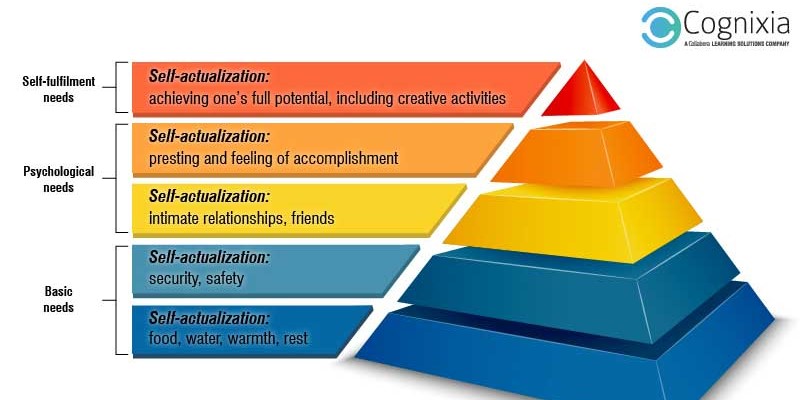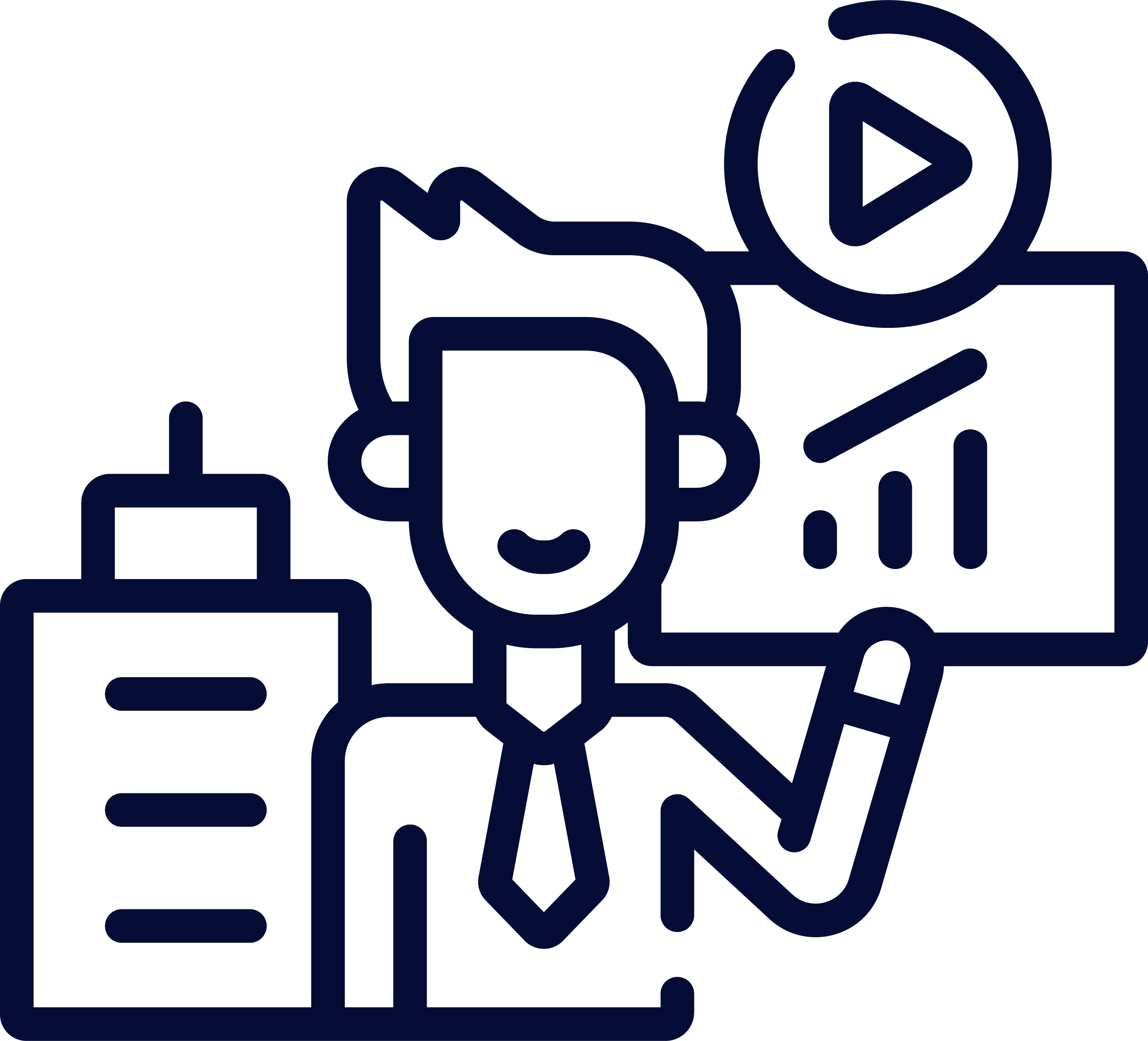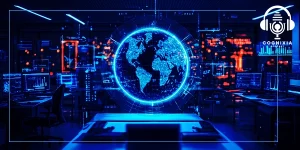Togetherness is a great trait of humanity. But does it works all the time, especially in learning and technology training? Emerging technologies, automation and cognitive computing have transformed the learning and development industry with cutting-edge infrastructure. Can the highly sophisticated Learning Management Systems (LMS) and the Robots that are being used to teach people, become more acceptable if they incorporate social behaviors?
In his paper named “A Theory of Human Motivation”, an American psychologist Abraham Maslow, in the year 1943, proposed a breathtaking theory. Acknowledged globally since decades, Maslow’s hierarchy of needs is, even today, considered a significant hypothesis in the realm of human development psychology.

Recently, UCLA Professor Matthew Lieberman defied Maslow’s hierarchy of needs by proposing that social needs must be placed at the bottom of the pyramid. Two questions, therefore, arise with this difference of thought. Is our social need of connecting with other people indispensable? And is it even more essential than food, water, warmth, and rest? Answering these questions must appropriately be left to the psychologists. The takeaway from the discourse so far is that social needs play a significant role for the development of an individual, and it can be leveraged to make learning and development more effective.
Man is a Social Creature
The human brain has evolved over millions of years, making us the social animals that we are today. If this social trait can be imbibed into learning and development, it can naturally have more effective outcomes as compared to doing it alone. Emotional traits and learning have a deep-rooted connection. The pre-frontal cortex in our brain handles both our emotions and our memories. With negative emotions such as fear or pressure, it has clinically been proven that our memory gets impaired.
Takeaway: According to psychologist Daniel Goleman, learning programs based on social and emotional characteristics can have effective outcomes.
The Mirror Reflections of Our Actions
Neuroscience postulates that there are mirror neurons present in the human brain. An individual watching the actions of another can sub-consciously start doing it himself or herself. For instance, if someone is humming the tunes of a song, you will notice yourself or someone else present in the vicinity humming it later. This trait has been identified quite clearly in new born babies as well who can imitate the actions of other people around them in as early as 40 minutes after birth.
Takeaway: The mystical neurons in our brain enable us to observe and mirror the actions of people around us and learn from them.
Our Brain: A Kaleidoscope of Social Relationships
American psychologist and professor of psychology at Pepperdine University, Louis Cozolino states that the brain is a social organ.
The prosperity in our brain is largely dependent on the symbiotic environment of our social relationships. Learning is closely linked to the stimulation of positive emotions and brain plasticity i.e. the ability of the brain to change in the course of time as we grow. When we build social relationships, we enhance our emotional well-being and brain plasticity, thus enhancing our learning endeavors.
A common adage attributed to Warren Buffet is:
It is good to learn from your mistakes. It is better to learn from other people’s mistakes.
On a more positive light, one has an innate quality, due to such evolution of the human brain, to pay more attention to other people and find it difficult to analyze oneself. This can help us to have a more wide perspective of the world where we discuss, empathize, and understand topics from completely different viewpoints.
Takeaway: An LMS, no matter how much elaborated with Augmented/Virtual Reality, Machine Learning & AI, and IoT, is a lifeless and emotionless robot altogether, at the end of the day. When this system backs social relationships among candidates, it enables social networking and there will be a significant increase in the size of the audience keen on using the system to resolve their learning woes.
Cognixia is an e-learning and digital transformation incubator with a wide-range of courses for students, individuals, and corporate workforce. We blend our strategies with both latest trends and traditional approaches that have stood the test of time. With industry-certified expert trainers and state-of-the-art infrastructure, we try our best to ensure customizability, and inculcate new approaches to make the learning process successful.




